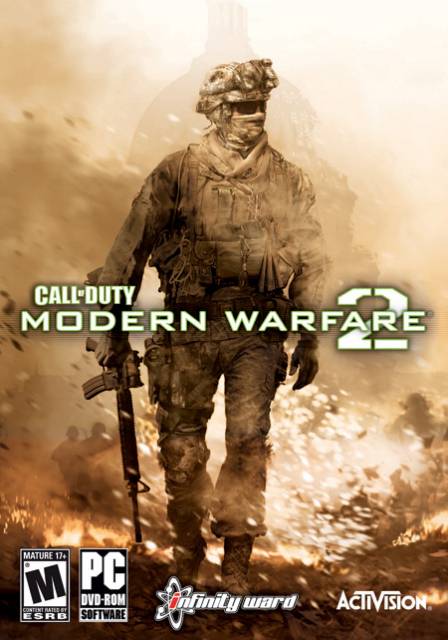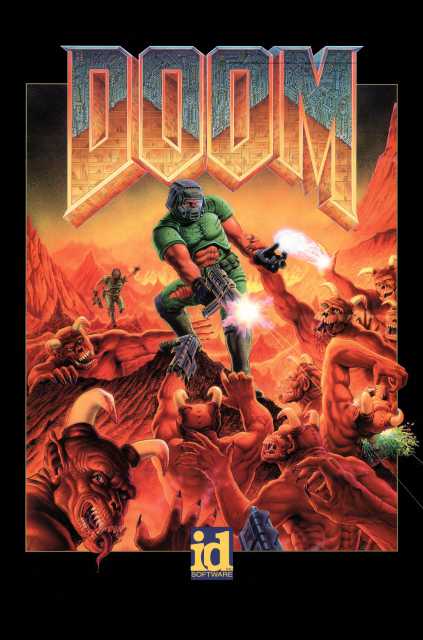Overview
There are various forms of camping across different genres of games. All of them involve a player remaining in one spot for an extended period of time in attempt to complete a task. The more popular definitions of camping include:
- First Person Shooters - A tactic involving one player, or multiple players in a team-based game, remaining stationary, often in a hidden or highly defensible location, in order to gain an advantage in attacking other players or teams.
- Spawn Camping - A tactic involving a player who patrols a particular area where other players respawn after death in order to easily kill them again. This strategy is generally frowned upon.
- MMORPGs - A tactic more prevalent in older games of the genre where a player would remain in one location where an NPC is known to spawn, and waits for this NPC to pop in order to kill it, speak to it, or turn in a quest item.
Shooters
 Call of Duty's success helped rekindle the long-standing animosity between campers and everyone else
Call of Duty's success helped rekindle the long-standing animosity between campers and everyone elseCamping can be one of the most frustrating strategies to work against in competitive shooters. Although some players argue that it's a legitimate way to play, it's thought of as unfair, cheap, or just rude by most non-campers, as shown by the fact that so many dedicated servers strictly forbid it.
It doesn't help that the term "camping" can describe a range of strategies, but is mainly associated with the most basic version: a player simply stands or crouches behind a door or in a dark corner, ready to unload on any opponent who comes along. This strategy is founded on the idea that most players like to move freely around the map - thus, the free-moving players focus on hunting each other, rather than checking every possible hiding spot. Some other important factors are the map size, the number of players in the game, and how much they communicate. Ideally, there are many players moving around a large map, so that the camper is unlikely to kill the same player twice in a row - a repeat victim is likely to want revenge, and can usually get it, especially in games with a killcam that reveals the camper's hiding spot. Since players who communicate may also work together against campers (even in a free-for-all match), camping is easier when voice and text chat aren't being used.
Another method of camping involves a sniper rifle or other similar weapon. The player will pick it up or select it and then go into a distant building or isolated corner of the map to begin camping. This type of camping is less threatening however, because level designers often account for the use of this tactic and usually add an avenue by which a player can creep up on the unsuspecting sniper.
In game modes where one team needs to defend an objective, some players are accused of camping when they really have no choice but to sit at the objective and make sure no one gets to it.
Spawn Camping
 DOOM
DOOMSpawn camping is a common gameplay tactic applicable in a number of multiplayer games, though it started, and is still most prevalent, in first-person shooters. Within most multiplayer games, the term "spawn" is usually used to directly describe the re-entry of a player's character into the game following death. Most of the time players spawn at set locations, which can effectively be camped, allowing unsporting players to remain within range of the spawning area and kill respawning players instantly as they enter the game.
While often recognized as a legitimate tactic in first-person shooters, it is usually considered to be an act of cheating, unfair play, and/or poor sportsmanship. In short, nobody likes a spawn camper, but practically everyone has done it at one point or another. Getting people to admit that they spawn camp is usually next to impossible.
Spawn Camping is a common problem in multiplayer games, and developers have taken note by introducing several mechanics in recent years to prevent or at least limit the ability of people to spawn camp. The majority of these attempts have proven successful in thwarting the efforts of spawn campers, and have been incorporated in many games since their initial inception:
- Invulnerability - Players are given several seconds of invulnerability at the moment they spawn. This runs out quickly, but gives players the ability to kill spawn campers that may be lying in wait in the immediate area, or at least run away before they're noticed. This particular mechanic has effectively eliminated spawn camping in many games.
- Numerous Spawning Locations - Some games have included many spawning points on a map, preventing a spawn camper from racking up significant kills at a single location. This is usually done through a system of mathematical equations which give the player the best place to spawn.
- Protected Spawning Locations - Many games, such as Team Fortress 2, provide covered spawning locations, protected with blast doors that only open when friendly players activate them. While this prevents enemy players from running into the spawning zone, it does not prevent them from firing through the open doorway at respawning players or from laying traps outside these areas.
- Automated Defenses - Many games, such as MechAssault 2, Enemy Territory: Quake Wars, and Crysis, feature automated, AI controlled defense turrets that instantly mow-down enemy players that attempt to gain access to spawning areas. These automated defenses typically have a set range of activity and are powerful enough to quickly destroy enemy players that venture too close.
Massively Multiplayer Online Role-Playing Games
 EverQuest
EverQuestCamping has a different connotation when it comes to MMORPGs. While in FPS-type games, it is a tactic used to gain an advantage of other real players, camping in MMORPGs is a tactic used interact in some way with a particular non-player character. In order to understand this concept, one must understand how many MMORPGs work in terms of NPCs. Most NPCs have a static spawn point. They don't always stay there, as many have a set path that they walk throughout the zone. Once a player kills that NPC or does something causing it to despawn (turning in a quest item, speaking to it, etc.), a spawn timer begins, which can be any amount of time but is usually the same every time for an individual NPC. This timer is not visible within the game, but players quickly learn timers of the more sought after mobs. A player knowing where the NPC spawns, can choose to wait at that spot for the next time it spawns. This is known as camping.
In some games, the specifc NPC (often referred to as a "named") required for the player's task does not always spawn when the spawn timer expires. Instead, a place holder spawns in its place. An example of this would be if a player must kill "a bandit leader," who always spawns at specific place. When the player goes to that spot, "a bandit recruit" is standing there instead. The player must kill this place holder and then wait out the spawn timer for a chance that the named NPC will spawn. This process must be repeated until the named appears.
Mathematics within the game determine the rarity and frequency of some of these NPCs. The spawn timer can be anywhere from a few minutes to upwards of a week of real time. Sometimes, more important NPCs will have a variable amount of time built into their timer so that no players can accurately predict the exact moment the NPC will spawn, even if they know the moment it was last killed or despawned.
Log in to comment